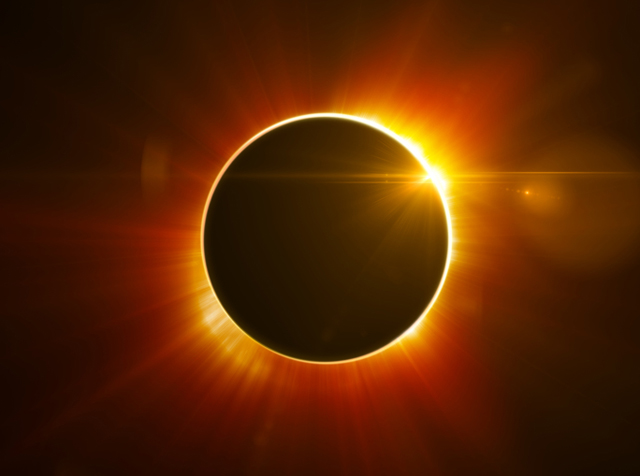 We’ve been waiting over two decades for this one.
We’ve been waiting over two decades for this one.
American stargazers have a treat come next August 21, when a total solar eclipse crosses the entire United States with room to spare. The first total eclipse the USA has seen in 26 years, all of the 48 continental states will have some sort of eclipse experience, but totality (the complete obliteration of the solar disk) begins in northwestern Oregon and then sweeps over the country in a lazy diagonal line to South Carolina. Twelve states in all will be in the dark; places like St. Louis, Omaha, Nashville, and Charleston will have front-row seats to this Big Daddy of celestial events. And if you think I am jumping the gun a little bit, trust me, people are already booking hotels.
In fact, 2017 is one of those rare years where there are the same amount of solar eclipses to lunar ones. The first eclipse of the new year, a solar one, is coming up fast, February 27, but unless you want to go south, like to Chile, Argentina, or Angola, you are plum outta luck. Too bad, because this one will be particularly dramatic, as it is “annular,” meaning that because the slightly oval orbit of Moon will bring it closer to the Sun, thereby making it seem slightly smaller to Earthbound viewers, what you will get is a dazzling ring of light in the sky. Think of it like a fiery eye with a particularly dilated pupil.
On the flip side (literally), two lunar eclipses will strike, on February 11 and again on August 7. The first will be generous — it will be seen anywhere except the Pacific Ocean. The August lunar eclipse will be a little more stingy, being seen only by Africa, Eurasia, and Australia. The downside is that neither will be a total shadowing of the Moon, but still an event nevertheless.
As a side note, many people think that it is safe to look directly at an eclipse because the Sun is partially or completely blotted out. Nothing could be further from the truth; it is NEVER safe to look directly into the Sun, even if its disk is obscured by clouds, haze, or the odd Moon. The American Astronomical Society and NASA websites all have handy guides to proper “eclipse glasses” (several shades darker than even a good pair of shades) to keep your peeps proper.
Steele Luxury Travel
